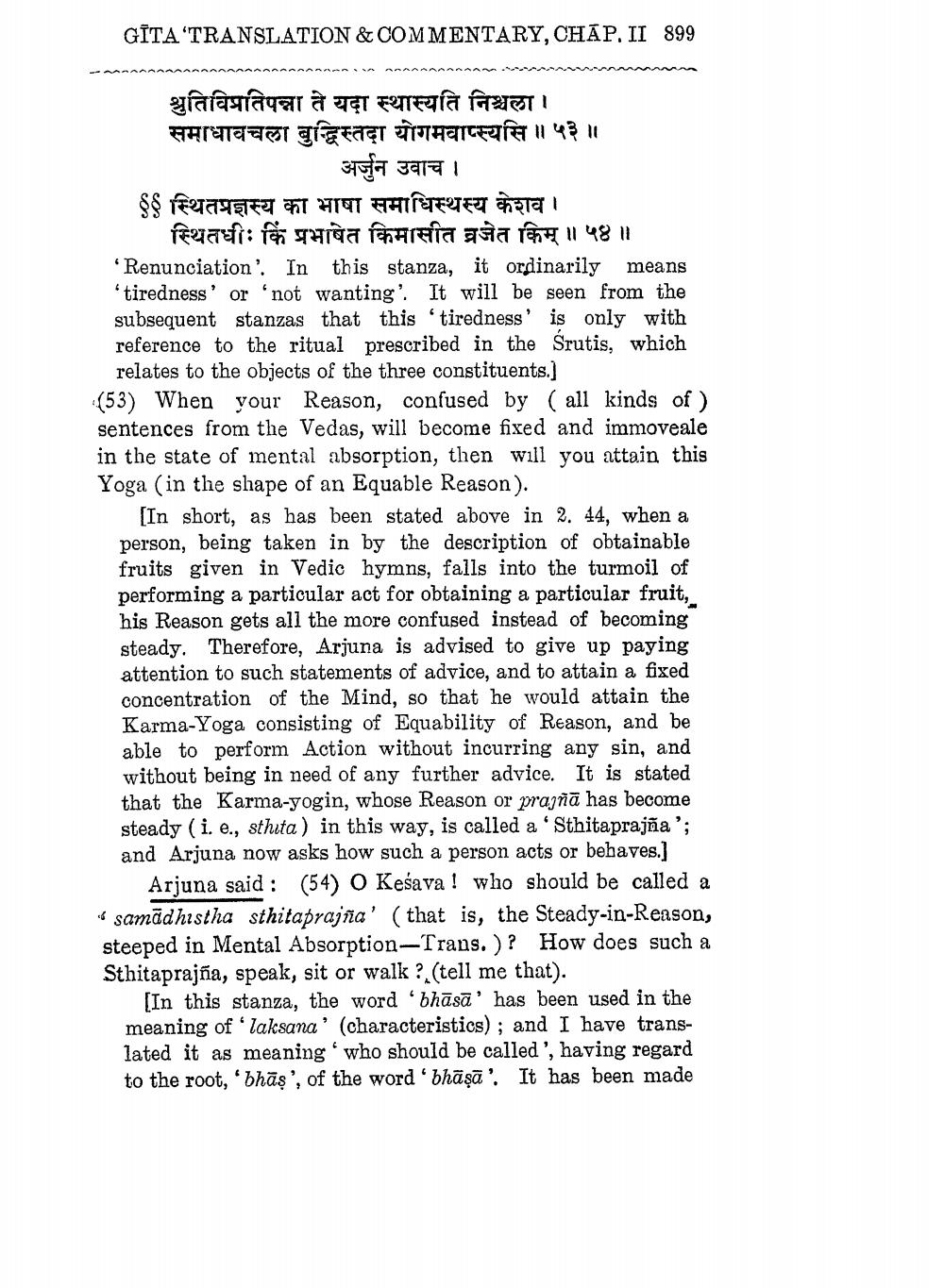________________
GITA TRANSLATION & COMMENTARY, CHẬP, II 899
श्रुतिविप्रतिपन्ना ते यदा स्थास्यति निश्चला। समाधावचला बुद्धिस्तदा योगमवाप्स्यसि ॥ ५३ ॥
345 3917 1 $$ स्थितप्रज्ञस्य का भाषा समाधिस्थस्य केशव ।
स्थितधीः किं प्रभाषेत किमासीत व्रजेत किम् ॥ ५४॥ Renunciation'. In this stanza, it ordinarily means tiredness' or 'not wanting'. It will be seen from the subsequent stanzas that this tiredness' is only with reference to the ritual prescribed in the Srutis, which
relates to the objects of the three constituents.) (53) When your Reason, confused by ( all kinds of ) sentences from the Vedas, will become fixed and immoveale in the state of mental absorption, then will you attain this Yoga (in the shape of an Equable Reason).
[In short, as has been stated above in 2. 44, when a person, being taken in by the description of obtainable fruits given in Vedic hymns, falls into the turmoil of performing a particular act for obtaining a particular fruit, his Reason gets all the more confused instead of becoming steady. Therefore, Arjuna is advised to give up paying attention to such statements of advice, and to attain a fixed concentration of the Mind, so that he would attain the Karma-Yoga consisting of Equability of Reason, and be able to perform Action without incurring any sin, and without being in need of any further advice. It is stated that the Karma-yogin, whose Reason or prajñā has become steady (i. e., sthita) in this way, is called a 'Sthitaprajña'; and Arjuna now asks how such a person acts or behaves.]
Arjuna said : (54) O Keśava ! who should be called a samadhistha sthitaprajña' (that is, the Steady-in-Reason, steeped in Mental Absorption-Trans.)? How does such a Sthitaprajña, speak, sit or walk ?.(tell me that).
[In this stanza, the word 'bhāsā' has been used in the meaning of 'laksana' (characteristics); and I have translated it as meaning' who should be called ', having regard to the root, bhās', of the word 'bhāşā'. It has been made




